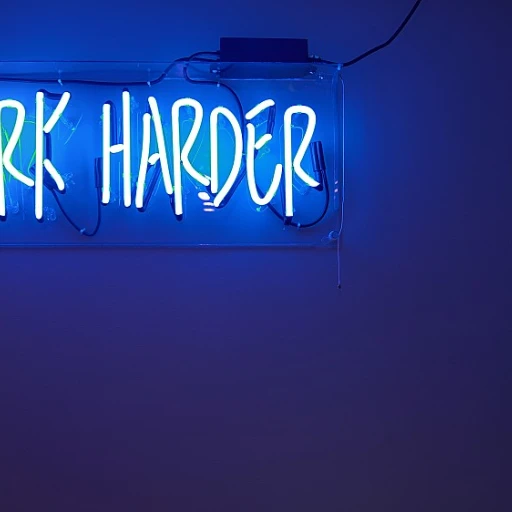
Understanding the Role of HR Professionals
Navigating the Complex Role of HR Professionals
The human resource field plays a crucial part in shaping the workplace culture of any organization. As professionals dedicated to fostering positive team dynamics and nurturing employee engagement, HR experts wear multiple hats every day. They are not just administrators; they are strategic partners in cultivating a thriving company culture. In today’s work environment, HR professionals are more than ever responsible for supporting the mental and emotional well-being of employees. They are the backbone of developing policies that balance professional and personal lives, thereby promoting an atmosphere of company appreciation and care. Moreover, the role of HR extends to professional development of employees, ensuring that everyone in the organization has access to growth opportunities. This focus on development helps cultivate a culture where teams and team members feel valued and supported. International recognition and the celebration of HR Contributions during International Day for HR professionals underscore the importance of their work. These acknowledgements are key in highlighting their hard work and dedication to both organizational success and employee well-being. For those seeking to truly understand the demands and rewards of this field, a deeper exploration into finding harmony in work-life balance for busy professionals can provide valuable insights. This understanding is crucial, especially as the challenges in attaining work-life balance continue to evolve in pace with the modern workplace.Challenges in Achieving Work-Life Balance
Juggling Various Responsibilities
HR professionals are pivotal in shaping an organization's culture and managing its human resources. This essential role often comes with its own set of challenges, especially regarding achieving a healthy work-life balance. Balancing day-to-day responsibilities with personal commitments can be overwhelming. Yet, it's an aspect that HR professionals need to master for their well-being and to foster a harmonious workplace culture.The Impact of High Expectations
HR teams are expected to maintain employee engagement, support professional development, and navigate complex employment issues. These expectations can lead to significant stress, especially when combined with the demands of a personal life. Many professionals find themselves working beyond regular hours, impacting their ability to achieve balance. This relentless pressure might even seep into company culture, leading to a workforce that feels perpetually underappreciated and overextended.Pressures from Multiple Directions
Working in HR means often being in the middle of competing demands from various stakeholders including management, employees, and external partners. Balancing these demands requires not only deep understanding and diplomacy but also significant amounts of time and energy. This situation is compounded when expectations for appreciation day celebrations, international day recognitions, or team member initiatives are added to their plate. For more insights into navigating these challenges in HR, you might find this resource on employment navigation helpful, as it provides practical strategies HR professionals can employ.Strategies for Better Work-Life Balance
Effective Approaches to Managing Work-Life Integration
For HR professionals striving for balance, successfully managing both personal and professional domains is critical. As individuals responsible for shaping workplace culture and employee engagement, human resource experts must navigate numerous responsibilities while ensuring their own well-being. When it comes to achieving balance, consider these strategies:- Prioritize and Delegate: Developing the ability to prioritize tasks can greatly assist HR professionals in managing their day-to-day workload. This may involve delegating specific tasks to other team members, allowing for more focused attention on strategic issues.
- Set Boundaries: Creating clear boundaries between work and personal life is essential. Whether it's setting specific office hours or turning off work notifications after hours, boundaries help prevent work from encroaching into personal time.
- Embrace Flexibility: The ability to adapt is crucial. With diverse teams and evolving priorities, HR professionals should advocate flexible working arrangements for themselves and their teams. Flexibility not only improves employee engagement but also nurtures a healthy company culture.
- Leverage Technology Wisely: Tools that facilitate collaboration and time management can lead to increased productivity and reduced stress. However, it's also important that technology does not lead to round-the-clock availability, overwhelming employees.
- Practice Self-Care: Implement regular self-care routines that include personal interests and hobbies. Engaging in activities that rejuvenate both physically and mentally can improve the quality of both personal life and professional output.
The Importance of Self-Care for HR Professionals
Emphasizing Personal Wellness
For HR professionals, prioritizing self-care is vital amidst the demanding duties that define their day. Balancing the needs of the organization and its employees often requires immense dedication and hard work, leaving little time for personal wellbeing. However, acknowledging one's limitations and setting boundaries contributes to a healthier work-life integration.
Establishing a support system within your team can be instrumental. Surrounding yourself with supportive team members encourages a culture of care, where human interaction becomes a source of energy rather than a drain. This shared responsibility not only enhances team performance but also nurtures a workplace culture that values the individual as much as the collective goal.
Fostering Company Culture and Appreciation
It's important to cultivate an environment where appreciation is regularly expressed, both on a professional day and beyond. Celebrations like the Happy HR Professional Day are perfect for reminding each member of their intrinsic value to the company. On such appreciation days, recognizing the relentless efforts of HR professionals boosts morale and reinforces the commitment to maintaining a positive organizational culture.
Leaders can play a pivotal role by creating opportunities for professional development. Encouraging employees to pursue growth opportunities builds resilience and enriches organizational life. Whether it's through regular appreciation events or team retreats, finding ways to celebrate contributions consistently strengthens the fabric of your organization.
Implementing Regular Check-ins
Engaging with employees regularly fosters an enriched workplace culture and ensures individuals feel valued. Check-ins are opportunities to address personal goals and challenges, which can translate into better employee engagement. These platforms for open dialogue improve communication channels and allow HR professionals to align their personal needs with the organization's objectives.
Investing in mental health resources not only supports employee well-being but also underlines the importance of viewing wellness as integral to professional success. By prioritizing self-care, HR professionals lay a strong foundation for both their wellbeing and their contributions to shaping a thriving work environment.
Celebrating Achievements on Happy HR Professional Day
Honoring the Dedication of HR Champions
Today is a special occasion for companies and teams worldwide to recognize and celebrate the tireless efforts of HR professionals. Acknowledging the hard work of these dedicated individuals not only boosts team morale but also enhances the company culture. It's important to remember that appreciating HR professionals shouldn't be limited to this day alone, but integrated into the ongoing organizational practices.
Organizations have the opportunity to show appreciation by offering personalized initiatives. Ideas could include hosting team gatherings where everyone shares stories of how HR professionals have made a positive impact, or creating a social media shoutout to publicly express gratitude. On this professional appreciation day, it's crucial to recognize how integral HR is in fostering employee engagement and workplace culture.
Another effective way to celebrate is to encourage HR professionals to partake in activities that nurture their own well-being. Given their role in championing employee care and support, allowing them a day to prioritize their professional development and self-care can be empowering. This can range from encouraging a day off work to sponsoring them to attend seminars or workshops focused on managing well-being in a demanding profession.
Lastly, this day provides a platform for HR teams to highlight their achievements collectively. By embracing a culture of recognition, organizations can strengthen their internal support systems and set a benchmark for continued appreciation. Let's ensure HR professionals feel valued and celebrated not just today, but every day they contribute to the success and betterment of the organization.
Resources and Support Systems
Accessing Resources and Support Systems
In the world of human resource professionals, accessing the right resources and support is crucial to navigating the complexities of balancing work and life. Organizations today recognize the importance of a supportive framework that fosters employee well-being and company culture. By effectively utilizing available resources, HR professionals can enhance both their personal and professional development.
Collaboration Tools and Platforms
Leveraging collaboration tools can significantly ease the daily workload for resource professionals. With advancements in technology, platforms like team communication software and project management tools have become essential in promoting efficient work practices and facilitating team collaboration. This enables HR teams to maintain a harmonious work environment while ensuring that employee needs are met in a timely manner.
Employee Assistance Programs (EAPs)
Employee Assistance Programs are another valuable resource for HR professionals. EAPs provide confidential support to employees dealing with personal or professional challenges. By offering these programs, organizations demonstrate their commitment to caring for their employees, fostering a sense of appreciation and support within the workplace culture.
Mental Health Resources
Access to mental health resources is vital for both HR professionals and employees alike. Companies promoting mental health awareness and offering resources such as counseling services, workshops, and stress management sessions can help create a positive and supportive work environment. This focus on mental health contributes to a more engaged and happy team, ultimately enhancing overall organizational success.
Professional Development Opportunities
Facilitating professional development opportunities is another way organizations can support their HR teams. By investing in training and continued education, companies provide employees with the tools they need to excel in their roles. Encouraging participation in industry conferences, workshops, and international HR professional days can also help resource professionals stay updated with the latest trends and best practices.
Celebrating Achievements Together
It's important to mark significant milestones and accomplishments in the field of human resources. Celebrating achievements, such as Human Resource Appreciation Day, not only boosts morale but also strengthens the bond among team members. When employees feel recognized and valued, they are more likely to contribute positively to the organization and its goals.
Utilizing these resources and support systems effectively creates a workplace culture that prioritizes the well-being of its people, ensuring HR professionals can continue to thrive and contribute to the overall success of their teams and organizations.













